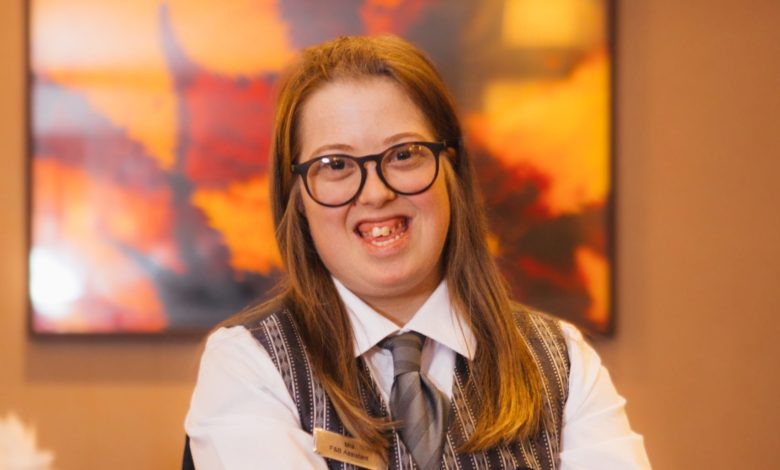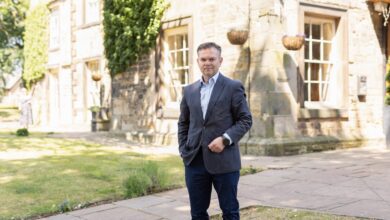How Hilton helps those with learning disabilities
Hotel Owner talks to Oliver Stockland and Mia Dell from Hilton about the struggles people with learning disabilities face getting into the workplace and what schemes are in place to help

The world of work can be a daunting place at the best of times and this can be especially heightened for disabled people. Research from Hilton found that nearly 90% of people with a learning disability have experienced difficulty finding a job.
However, Hilton has made it its mission to help those with disabilities get into the hospitality industry by partnering with Down’s Syndrome Association’s WorkFit programme, and Aurora Foxes.
The company’s partnership with the scheme has allowed people like Mia Dell, 22, from London find a place to hone her skills and get experience in the industry. Dell tells Hotel Owner about her experience in her role as a food and beverage assistant at Hilton London Euston.
The challenges
To begin with, it is important to dig further into the data from Hilton to highlight how important the company’s work with the Work Fit programme and Aurora Foxes is.
According to data from the British Association for Support Employment under 5% of people with learning disabilities are employed. Along with this, the Hilton survey found that 79% of these individuals said a fear of being judged at the interview stage put them off applying for a job and 51% stated that they had a lack of confidence and felt that prospective employers would not see what they could potentially do in the role with the right support.
“Hilton’s recent study for Learning Disability Week found that only 38% of decision makers in hospitality are likely to hire somebody with a learning disability in the future. This is despite the fact that 84% of those who have hired someone with a learning disability previously saying that individual met or exceeded expectations.
“Those who have hired someone before also reported significant benefits for their team – including stronger bonds and empathy – so it’s clear that there is a huge pool of talent for businesses to harness,” says Oliver Stockland, area general manager, Hilton.
All of this data shows why the aforementioned schemes are so important. People with learning disabilities need support to reach their full potential and employers need help to be able to support those individuals.
Hilton commitment to helping
This brings us on to Dell, who has worked at Hilton for a year now. She was part of the Aurora Foxes scheme which aided her in securing her current role. After spending three years on the scheme gaining work experience in various places she was offered a job to work at Hilton London Euston.
“Going to the Aurora Foxes Academy gave me the opportunity for work experience at various places, including Hilton London Euston and they then offered me a job when I finished my 3-year course.
“I get up at 6.15am, get ready for work and travel to Euston by tube with support and arrive around 7.45am. I start work on breakfast at 8.00am, serving customers, and polishing the cutlery, plates and glasses. I enjoy serving customers hot drinks, showing them the buffet and cleaning the tables,” explains Dell.
Despite her previous training there has still been quite a learning curve for Dell. However, she has become an invaluable team member in a short space of time with a particular skill for breakfast service.
“I have learnt to use the till and to work with a team. My team is very friendly, and everyone helps each other, which is why I love working here. I love working the breakfast service, as I get to talk with all our guests and recommend what food they should try. I’m getting better at my job with the support of the Hilton team. I really like my team as they are very welcoming to me, and they support me in everything.”
Stories like Mia show to employers that with the right support and training those with learning disabilities can become valuable members of staff. This means that the ball is now in the court of the employers to deploy the right support and take advantage of existing schemes to help those who need it.
“Our research found that 27% didn’t feel they have the right infrastructure in place to hire those with a learning disability – which is why working alongside organisations like Aurora Foxes is so important. The likes of Aurora Foxes – and the Down’s Syndrome Association’s WorkFit programme – provide invaluable insight to support creating an inclusive recruitment process and work environment that allows everyone to thrive,” Stockland states.
“These findings show a real need for businesses to do more in terms of training and support. When you prioritise inclusion, individuals with learning difficulties can thrive in their roles and contribute to the success of a business.
“Former Foxes students have really benefited their employers because of their strong work-ethic, dedication and attention to detail. Our students benefit from working too, as entering the workplace can provide a sense of purpose and self-worth. It also leads to increased social connection and financial independence so they can lead the life they choose,” concludes Mark Costello, principal at Aurora Foxes.









